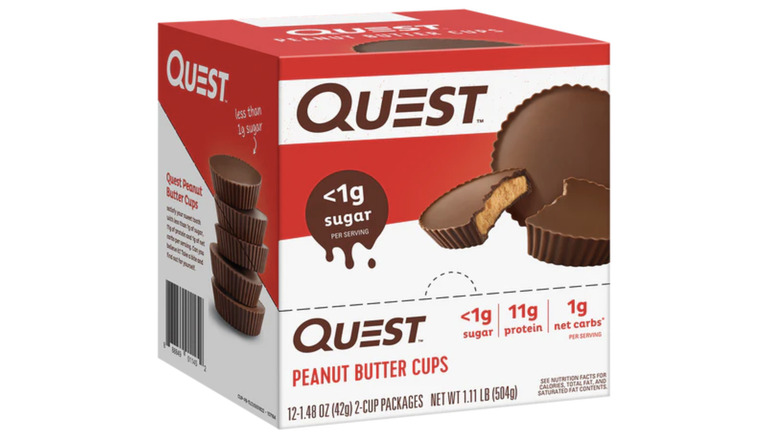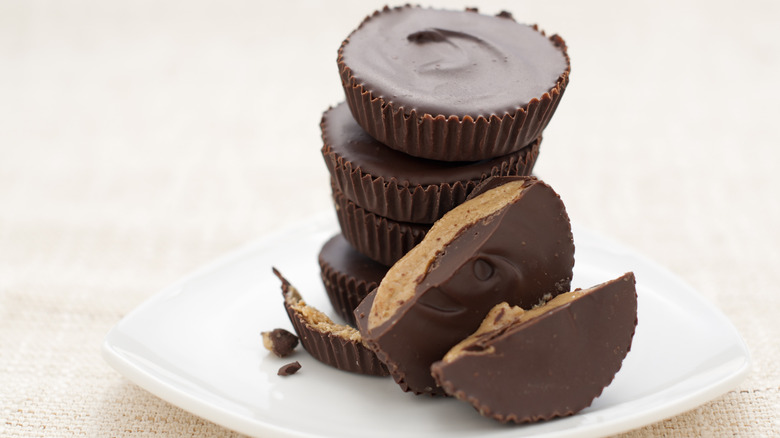Are Quest Peanut Butter Cups Actually Healthy?
As their name suggests, Quest is on a quest to bring consumers healthy snacks that deliver on taste as well as high-quality ingredients, with protein at the forefront. From chips to cookies, shakes, iced coffee, and more, there's no shortage of options, whether you prefer to eat or drink your protein. Quest's peanut butter cups look to be a particularly enticing treat for peanut butter-lovers and sweet-lovers alike. Like most foods, however, there may be benefits and drawbacks depending on one's dietary needs.
Take a look at the nutrition label, and you'll see that one serving of Quest Peanut Butter Cups (2 cups) contains 50 milligrams (mg) of calcium, making up 4% of the recommended daily value (DV). You'll also find 120 mg of potassium, accounting for 2% of the daily value. These nutrients are essential to our body's functioning, and every little bit helps. The treat's main draw, however, is the fact that it contains 11 grams of protein, 1 gram of net carbs, and less than 1 gram of sugar per serving, the company highlights. The recommended daily intake for protein stands at 0.8 grams per kilogram of body weight (via Mayo Clinic). This equates to approximately 60 grams of protein per day for a person weighing approximately 165 pounds, for example. From this perspective, one serving of Quest Peanut Butter Cups gives us a healthy start on our way there.
Potentially unhealthy ingredients in Quest Peanut Butter Cups
With less than 1 gram of sugar per serving, Quest Peanut Butter Cups could be considered healthy since they keep one's sugar intake well below the recommended daily limit. According to the American Heart Association (AHA), men are advised to limit their added sugar intake to 36 grams a day and 25 grams daily for women. For comparison, a serving of Reese's Peanut Butter Cups (2 cups) contains 22 grams of sugar, 20 of which are added sugar. With less than 1 gram of sugar, Quest Peanut Butter Cups have no added sugar. The snack is also gluten-free and keto-friendly, potentially making it a good choice for people adhering to certain diets.
One thing to consider, however, is that the company recently changed up some of their product ingredients due to supply shortages to include soy lecithin and/or vegetable oil, including soybean. Subsequently, these snacks would not be a safe choice for people with food allergies. Alternatively, Quest's peanut butter cups contain palm kernel oil. While considered healthier than butter, Harvard Medical School explains that palm kernel oil contains over 85% saturated fat, which can increase "bad" cholesterol if eaten in excess. The peanut-buttery treat also contains erythritol, a natural sugar alcohol that has been celebrated for the fact that it doesn't produce blood sugar spikes. While considered safe overall, some research suggests a link between erythritol and digestive discomfort, blood clots, and heart issues, although further research is required (via Healthline).


